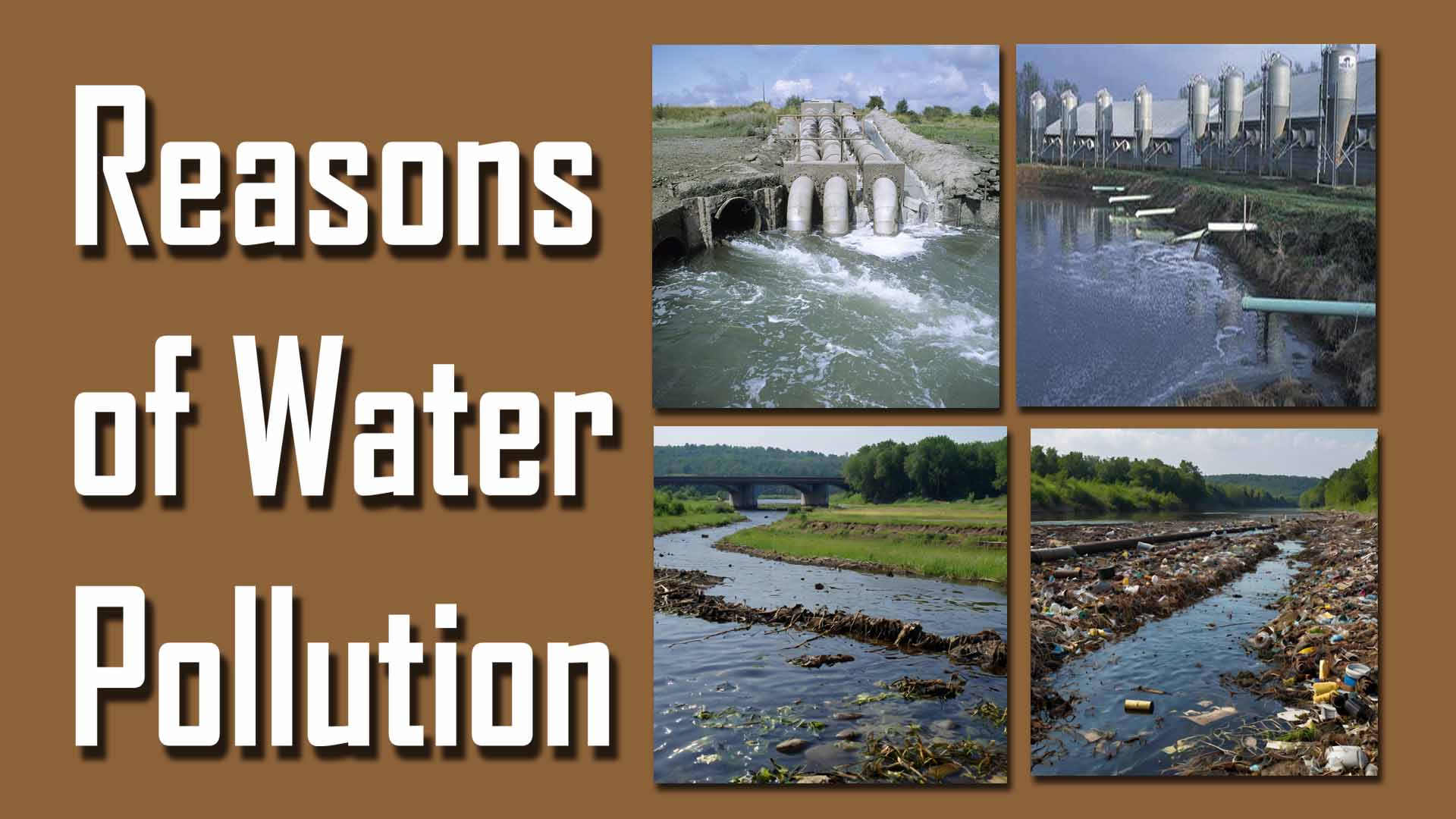

 Causes of Water Pollution
Causes of Water Pollution
Water pollution is a significant environmental issue caused by a variety of factors. The primary reasons include:
1. Industrial Discharge:
o Factories and industrial plants release pollutants directly into water bodies. These pollutants often include toxic chemicals, heavy metals, and organic waste.
2. Agricultural Runoff:
o The use of pesticides, herbicides, and fertilizers in agriculture can lead to runoff into nearby streams and rivers, contaminating the water with harmful chemicals and nutrients.
3. Sewage and Wastewater:
o Untreated or inadequately treated sewage and wastewater from households and commercial establishments can carry pathogens, nutrients, and chemicals into water bodies.
4. Oil Spills:
o Accidental oil spills from ships, offshore drilling platforms, and pipelines can have devastating effects on marine life and water quality.
5. Plastic and Other Litter:
o Improper disposal of plastic and other non-biodegradable waste leads to the accumulation of debris in water bodies, affecting aquatic life and water quality.
6. Mining Activities:
o Mining operations can result in the contamination of water with heavy metals, acids, and other harmful substances released during the extraction and processing of minerals.
7. Thermal Pollution:
o The discharge of hot water from industrial processes or power plants can raise the temperature of water bodies, disrupting aquatic ecosystems and reducing oxygen levels.
8. Marine Dumping:
o The disposal of garbage, sewage sludge, and other waste materials into the ocean can introduce harmful substances into the marine environment.
9. Atmospheric Deposition:
o Pollutants released into the air from various sources can settle into water bodies through precipitation, leading to acid rain and the deposition of toxic substances.
10. Urban Runoff:
o Rainwater runoff from urban areas can carry pollutants like oil, grease, heavy metals, and debris from streets, parking lots, and rooftops into nearby water bodies.
11. Deforestation and Soil Erosion:
o The removal of vegetation and disturbance of soil can increase erosion and sedimentation in water bodies, reducing water quality and harming aquatic habitats.
12. Inadequate Waste Management:
o Poorly managed landfills and waste disposal sites can leach contaminants into groundwater and surface water, leading to pollution.Addressing water pollution requires comprehensive strategies, including stricter regulations, improved waste management practices, the adoption of cleaner technologies, and public awareness initiatives to reduce the release of pollutants into the environment.